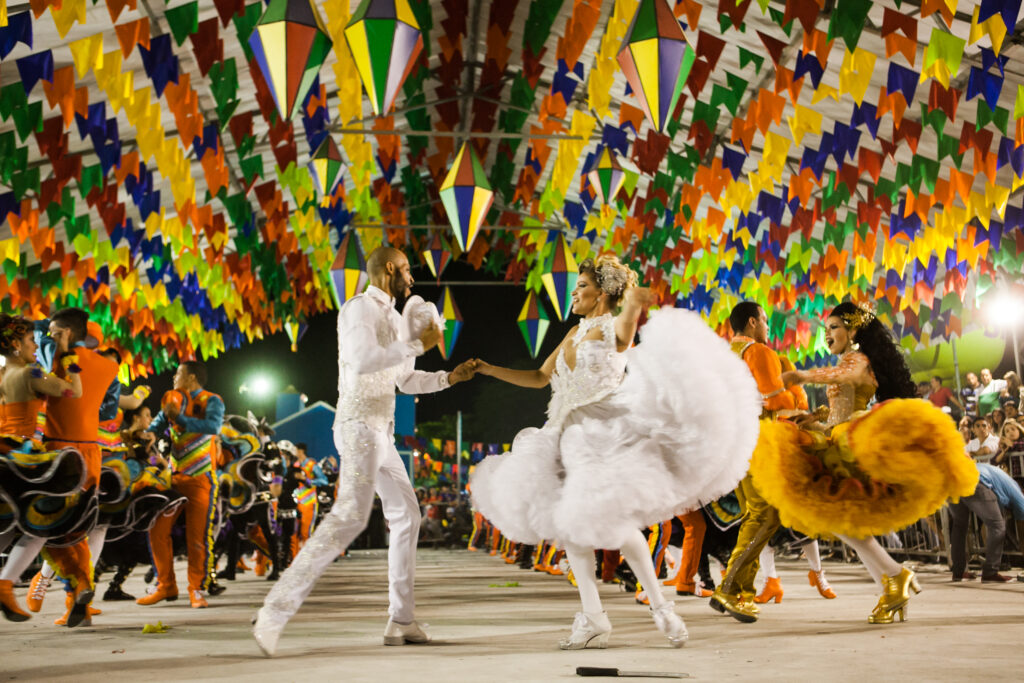
June 24, the date on the Catholic calendar commemorating the birth of St. John the Baptist, is widely celebrated in northeastern Brazil. Festas juninas (June festivities, or St. John’s Day festivities) take place from early June to mid-July and are characterized by the presentation and representation of diverse cultural traditions of the region.
Forró, the typical music of this period, brings together diverse musical genres, dances, and a strong festive connotation. Forró emerged in the 1970s with strong contributions from artists of northeastern Brazil, who performed for migrants in the region including construction workers, maids, and middle class people nostalgic for regional rhythms. Although many forró musicians born before the mid-1970s acquired their musical competence outside of formal educational institutions, large segments of the younger generation attend schools of music (though not necessary in lieu of other learning strategies). Meanwhile, changes in the organization of professional forró activities are linked to the larger transformations of northeastern festas juninas since the late 20th century.
Read the entries on forró and junina music in the Encyclopedia of Brazilian music: Erudite, folkloric, popular (2010) in RILM Music Encyclopedias (RME). Also find the article “Musicians in street festivals of northeastern Brazil: Recent changes in forró music and St. John’s Day festivities” by Carlos Sandroni, et al. (The world of music V/1 [2016] pp. 159–79) in RILM Abstracts.


